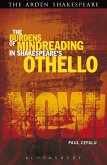The Anatomy of Insults in Shakespeare's World explores Shakespeare's complex art of insults and shows how the playwright set abusive words at the heart of many of his plays. It provides valuable insights on a key aspect of Shakespeare's work that has been little explored to date. Focusing on the most memorable scenes of insult, abusive characters and insulting effects in the plays, the volume shifts how readers understand and read Shakespeare's insults.
Chapters analyze the spectacular rhetoric of insult in Henry IV, Troilus and Cressida and Timon of Athens; the 'skirmishes of wit' in Much Ado about Nothing and A Midsummer Night's Dream; insult and duelling codes in Romeo and Juliet, As You Like It and Twelfth Night, the complex relationships between slander and insult in Much Ado about Nothing and Measure for Measure; the taming of the tongue in Richard III and The Taming of the Shrew, the trauma of insults in Othello, The Merchant of Venice and Cymbeline and insult beyond words in Henry V and King lear.
Grasping insult as a specific speech act, the volume explores the issues of verbal violence and verbal shields and the importance of reception and interpretation in matters of insult. It offers a panorama of the Elizabethan politics of insult and redefines Shakespeare's drama as a theatre of insults.
Chapters analyze the spectacular rhetoric of insult in Henry IV, Troilus and Cressida and Timon of Athens; the 'skirmishes of wit' in Much Ado about Nothing and A Midsummer Night's Dream; insult and duelling codes in Romeo and Juliet, As You Like It and Twelfth Night, the complex relationships between slander and insult in Much Ado about Nothing and Measure for Measure; the taming of the tongue in Richard III and The Taming of the Shrew, the trauma of insults in Othello, The Merchant of Venice and Cymbeline and insult beyond words in Henry V and King lear.
Grasping insult as a specific speech act, the volume explores the issues of verbal violence and verbal shields and the importance of reception and interpretation in matters of insult. It offers a panorama of the Elizabethan politics of insult and redefines Shakespeare's drama as a theatre of insults.









